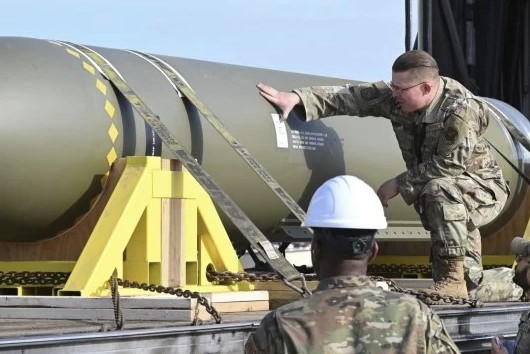A senior Iranian official made a shocking claim on Iranian state television. He said Pakistan would use nuclear weapons against Israel if Israel strikes first. He specifically mentioned Pakistan’s long-range Shaheen-3 missile.
Iranian General: Pakistan Will Strike Israel with Shaheen-3 If Nuked
The missile is capable of carrying a nuclear warhead. The statement was made by Mohsen Rezaei during a live interview. Rezaei is a top general in Iran’s Revolutionary Guard and a member of the Iranian National Security Council.
According to Rezaei, “Pakistan has told us that if Israel uses nuclear missiles, we will also attack it with nuclear weapons.” This remark has caught the attention of the international community due to its serious nature and implications. However, as of now, there is no official confirmation or statement from the Pakistani government or military to verify Rezaei’s claim.
The remarks come amid ongoing tensions between Israel and Iran, which have worsened following a series of airstrikes, missile attacks, and military responses from both sides. These confrontations have already caused loss of life and destruction on both ends.
Although Pakistan has not officially declared any plan for nuclear retaliation, the Iranian general’s statement has drawn widespread attention. This is because it could have serious consequences for the region and the world. Many are closely watching the situation due to its potential impact.
The Shaheen-3 Missile from Pakistan and Its Capability to Reach Israel
The Iranian general’s comments made reference to Pakistan’s Shaheen-3 missile. This is a long-range ballistic missile developed by Pakistan with the ability to carry nuclear warheads. The missile can reach targets up to 2,700 kilometers away, which includes all parts of Israel, including the city of Tel Aviv.
Shaheen-3 is part of Pakistan’s strategic military arsenal and is designed to act as a deterrent. It gives Pakistan the ability to strike distant targets in the Middle East. Though there has been no official statement from the Pakistani military about the recent status of this missile, it is widely believed that Shaheen-3 is operational and under the control of Pakistan’s strategic command.
The missile’s range covers not just Israel, but also parts of the Middle East and even beyond. Its capability to deliver nuclear warheads makes it a powerful and serious weapon. However, military experts note that having a missile capable of hitting a target and actually deciding to launch it are two very different things.
For now, the claim made by the Iranian general stands alone. There has been no evidence presented publicly, and Pakistan’s defense establishment has neither confirmed nor denied it.
Pakistan Reaffirms Strong Support for Iran After Israeli Strikes
Despite not confirming the use of nuclear weapons, Pakistan has shown strong verbal and diplomatic support for Iran. Following recent Israeli strikes on Iranian targets, Pakistan’s government has openly criticized Israel and expressed solidarity with Tehran.
Khawaja Asif, Pakistan’s defense minister, addressed the National Assembly on June 14 and urged Muslim nations to come together. He said that Israel’s attacks were not just against Iran, but also against Yemen and Palestine. He warned that if Muslim nations do not act together, all of them could be vulnerable to similar strikes in the future.
Khawaja Asif also urged Muslim countries that have diplomatic relations with Israel to cut ties immediately. He called on the Organization of Islamic Cooperation (OIC) to hold a meeting and come up with a joint strategy to respond to Israeli aggression.
Pakistan’s Prime Minister Shehbaz Sharif also spoke with Iran’s new President Masoud Pezeshkian by phone. During the call, he condemned Israel’s actions, calling them a violation of Iran’s sovereignty. He added that the peace in the area and the world is under danger because of these actions.
Pakistan would back Iran in all international forums, according to Prime Minister Sharif. In order to halt Israel’s attacks and stop additional violence, he also urged the UN and the international community to act.
In the meantime, the Israeli-Iranian crisis has gotten worse. Israeli fighter planes have struck what they say are military and nuclear installations in Iran. Iran has retaliated with its own missile strikes. Reports confirm that there have been casualties on both sides.
The situation remains extremely tense, with both military and diplomatic actions taking place every day. The international community is closely watching, but for now, the only confirmed action from Pakistan is diplomatic and verbal support for Iran. The nuclear threat statement from the Iranian official has not been confirmed or denied by Islamabad.

